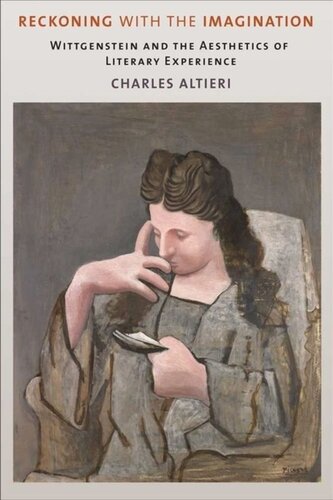

Most ebook files are in PDF format, so you can easily read them using various software such as Foxit Reader or directly on the Google Chrome browser.
Some ebook files are released by publishers in other formats such as .awz, .mobi, .epub, .fb2, etc. You may need to install specific software to read these formats on mobile/PC, such as Calibre.
Please read the tutorial at this link: https://ebookbell.com/faq
We offer FREE conversion to the popular formats you request; however, this may take some time. Therefore, right after payment, please email us, and we will try to provide the service as quickly as possible.
For some exceptional file formats or broken links (if any), please refrain from opening any disputes. Instead, email us first, and we will try to assist within a maximum of 6 hours.
EbookBell Team

4.4
62 reviewsMuch current theorizing about literature involves efforts to renew our sense of aesthetic values in reading. Such is the case with new formalism as well as recent appeals to the notion of "surface reading." While sympathetic to these efforts, Charles Altieri believes they ultimately fall short because too often they fail to account for the values that engage literary texts in the social world. In Reckoning with the Imagination, Altieri argues for a reconsideration of the Kantian tradition of Idealist ethics, which he believes can restore much of the power of the arguments for the role of aesthetics in art. Altieri finds a perspective for that restoration in a reading of Wittgenstein’s later work that stresses Wittgenstein’s parallel criticisms of the spirit of empiricism. Altieri begins by offering a phenomenology of imagination, because we cannot fully honor art if we do not link it to a distinctive, socially productive force. That force emerges in two quite different but equally powerful realizations in his reading of John Ashbery’s "Instruction Manual," which explicitly establishes a model for a postromantic view of imagination, and William Butler Yeats’s "Leda and the Swan." He then turns to Wittgenstein with chapters on the role of display as critique of Enlightenment thinking, the honoring of qualities like sensitivity and the ability to attune to the actions of others, the role of expression in the building of models, and the contrast between ethical and confessional modes of judgment. Finally, Altieri produces his own model of aesthetic experience as participatory valuation and makes an extended argument for the social significance of appreciation as a way to escape the patterns of resentment fundamental to our current mode of politics. A masterful work by one of our foremost literary and philosophical theorists, Reckoning with the Imagination will breathe new life into ongoing debates over the value of aesthetic experience.